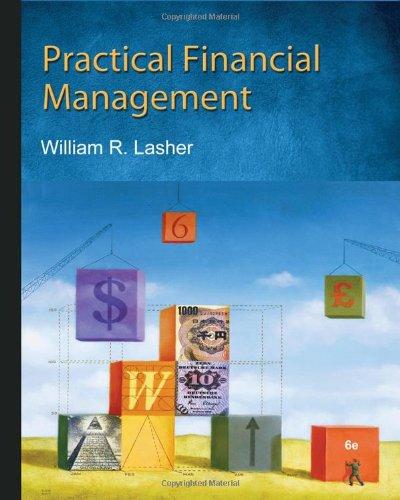Question
Glyn Williams is a successful entrepreneur and thinking about retiring in one year.Over the past 15 years he started and sold many small businesses. At
Glyn Williams is a successful entrepreneur and thinking about retiring in one year.Over the past 15 years he started and sold many small businesses. At the age 40, he is thinking about ending his entrepreneurial to get more comfortable lifestyle. He expect to earn 2.4 million this year from profits and 600,000 from the sale of his last small business. All return and profit have the tax rate 40%.
Williams managed his own investments, and the result, his growth equity portfolio has not had as much success as his businesses. His worst performing security is D&D, an investment he first made about five years ago. Instead of liquidating his position in response to extended decreases in D&D's share price, Williams purchased more shares to lower his average cost per share. Hr totally avoids energy securities because his parents experienced serious losses in that industry in 1980s. The rest of his growth equity portfolio has performed adequately. He also has commercial real estate investments that expected cash- flow neutral this year.
Glyn Williams's personal assets
cash saving: 2,400,000
Growth equity portfolio: 24,000,000
Commercial real estate investments 8,400,000
Williams expects annual after-tax interest income on his cash saving to be 60,000 at the end of this year. He plans to pay cash for a 2.8 million oceanfront home when he receives the cash from the sale of his last business. He also plans to gift all of his commercial real estate investments to the foundation upon his retirement and not expect to receive any compensation from other sources.
He divorced his wife of 20 years and have a twin daughters, age 10, both live their mom. He make child support payment that expected total 480,000 this year and those payments will stop when his daughters turn 18 years old. Williams living expense expected to be 720,000 this year, support that both living expense and child support increase at the expected 4% annual inflation rate. All dividends from the equity portfolio are reinvested in the portfolio at no cost to Williams. He stated that he wants to maintain the real value of his portfolio during his retirement, and expects that the portfolio to meet his living expenses for his expected 40 years of retirement. Justin Rabey, CFA, who was recently hired by Wiliiams, expects the after tax nominal annual return for growth equity to be 8.5%.
- States all return objectives in Williams investment policy statements.
- Calculate the after tax nominal rate of return required during Williams first year of retirement assuming no tax consequence to pay child support or gift commercial real estate investments to his foundation.
- Identify three factors of his personal situation that increase his ability to take risk and one factor that decrease his ability to take risk Determine whether William most likely to has below- average, average, or above average ability to take risk.
Step by Step Solution
There are 3 Steps involved in it
Step: 1

Get Instant Access to Expert-Tailored Solutions
See step-by-step solutions with expert insights and AI powered tools for academic success
Step: 2

Step: 3

Ace Your Homework with AI
Get the answers you need in no time with our AI-driven, step-by-step assistance
Get Started


